ASTROSAT Soft X-ray Telescope CCD camera:
ASTROSAT SXT will carry as its focal plane instrument
a thermoelectrically cooled X-ray CCD camera, based on the
e2V Technologies CCD-22 chip flown in the XMM and SWIFT missions.
The CCD has 600x600 pixels each of 40 micron square. It is a
frame transfer device - an image transferred from image to store
section can be read out while a new image is being acquired.
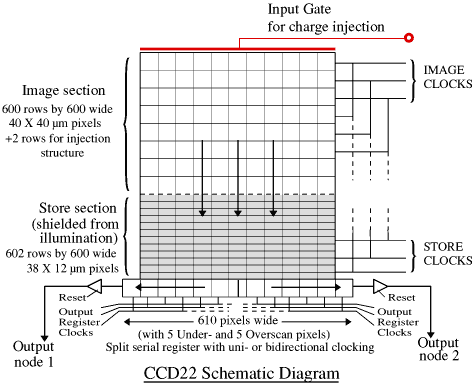
The CCD will operate in single photon counting mode. Each X-ray
photon, depending on its energy, will liberate about 100 to 1000
electron-hole pairs. Preserving this total charge information
for each photon will lead to the measurement of its energy, thus
enabling spectroscopic studies. The energy resolution is strongly
degraded by system noise. To reduce thermal noise in the CCD it
will be thermoelectrically cooled to an operating temperature
of -80oC, which is expected to yield an energy resolution
of about 2% at 6keV.
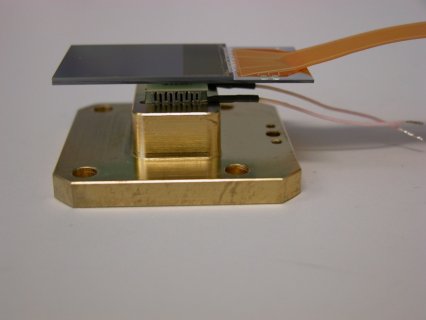
Thermoelectric cooler and CCD assembly
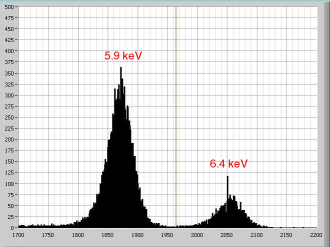
Lab test result:
isolated pixel events histogram on the CCD showing its
energy resolution
The Focal Plane Camera Assembly will consist of the CCD and its
cooling arrangement housed in a cryostat, which will also contain
four Fe55 calibration sources,
an optical blocking filter for the CCD and an aluminium proton
shield to protect the CCD from proton damage while passing through
the South Atlantic Anomaly region. The optical blocking filter
is made of a single fixed polyamide film of thickness 184 nm, with
a 48.8 nm thick aluminium coating on one side. This yields an
optical transmission of about 0.25%, limiting the background
light reaching the detector. The entire cryostat body is made
of aluminium alloy, gold plated for thermal insulation.
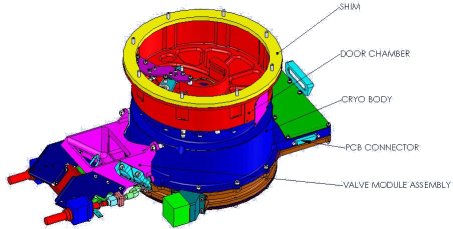
A drawing of the SXT Focal Plane Camera Assembly
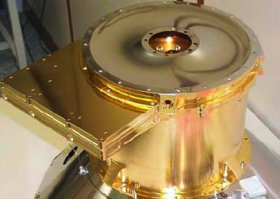
SXT FPCA Cryostat made of gold-coated aluminium
|
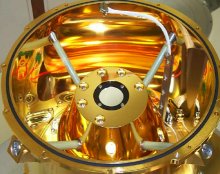
The Optical Blocking Filter mounted inside the SXT Cryostat
|

















